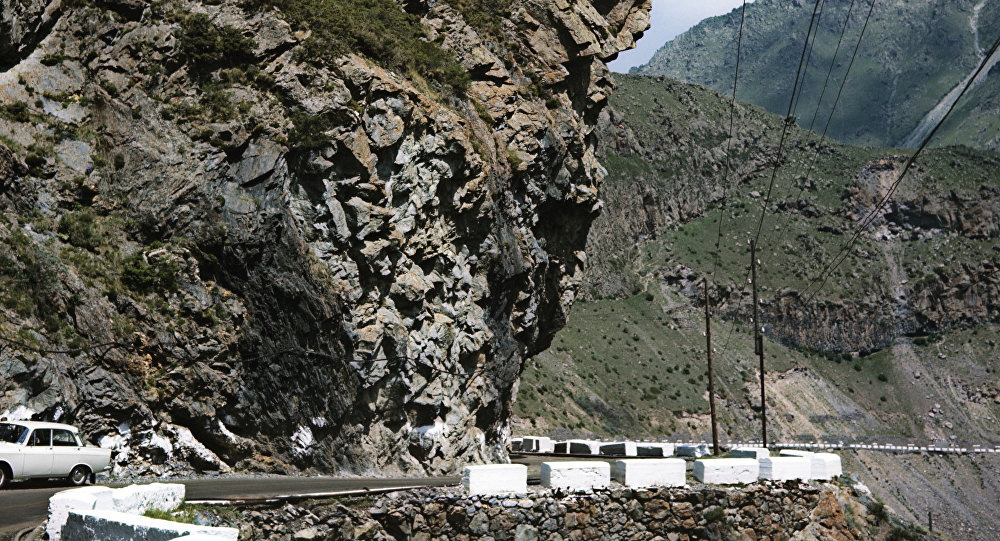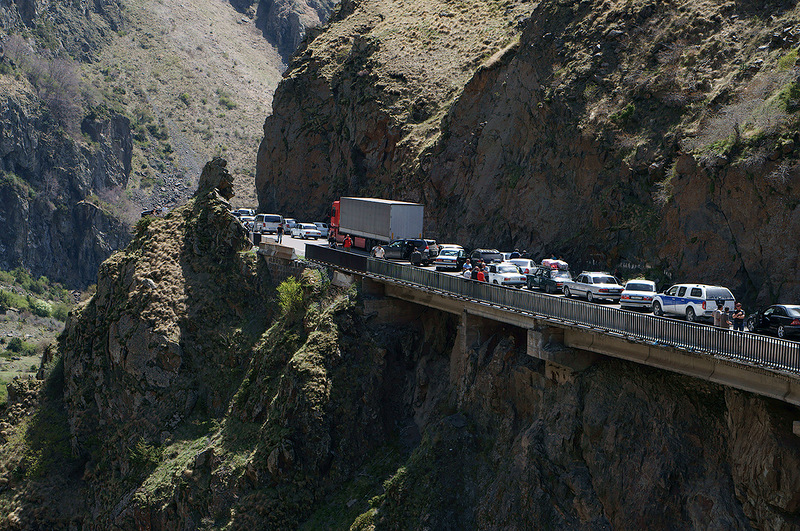Georgian Prime Minister Giorgi Kvirikashvili held an expanded emergency meeting of the Security and Crisis Management Council (SCMC) with the participation of the heads of all the law enforcement agencies and key ministries, as well as the heads of regional administrations. The SCMC is the governmental analogue of the National Security Council (NSC) under the President. It is held extremely rarely – only in emergency situations, when the immediate intervention of the Cabinet is needed.
The catastrophic situation on the Georgian Military Road was the only topic of discussion at the Council. The mudslide cut off all communications in the Amalie-Devdorakskoe Gorge, including the only highway connecting Georgia and Armenia with Russia.

The Georgian Infrastructure Minister Nodar Javakhishvili presented a report on the construction of a mudslide-protective dam. In addition, they are trying to deepen the bed of the River Terek using special equipment. As a result, the flow of water was reduced, but the reporter admitted that these measures are unlikely to solve the problem fundamentally. Experts find it difficult to talk about the timing of the opening of the Georgian Military Road. Some of them believe that it will take weeks for the full completion of works. Thus Georgia and particularly Armenia once again find themselves in a difficult situation after losing the only highway to Russia.
The Georgian Interior Ministry has evacuated Russians stranded on the road. They were helicoptered to the Verkhny Lars crossing post near the Russian-Georgian border. No one has been injured. Russian, Armenian and Georgian drivers turned their cars back, convinced of the futility of hopes for an early opening of the road. It's unlikely that trucks will pass until July 5-6.

The most depressing thing is the complete futility and impossibility of a long-term solution to the problem. Vestnik Kavkaza has repeatedly reported in recent years about problems on the Georgian Military Road as a result of natural disasters, and wrote about the plight of truckers, tourists and locals, who were often 'locked' in snow captivity, unable to move.
However, the uniqueness of the current situation is that this time the catastrophic situation happened during the summer, not winter. Although there have been mudslides in the past, none have been so massive. For example, on May 1, 2014, the strategic Russia-Georgia-Armenia gas pipeline was damaged by a mudslide near the village of Gveleti in the Daryal Gorge near the Georgian Military Road. Then the road was restored and opened in three days. Now the situation is compounded by the fact that the highway is damaged in an area where engineering works are complicated by the terrain.

Experts warn that even if the Georgian government will be able to restore traffic relatively quickly, such situations will be repeated ever more often, because there are geological processes which cannot be influenced in the Main Caucasian Ridge. But natural processes themselves can seriously affect the geopolitical situation on the southern side of the Caucasus mountain range.






